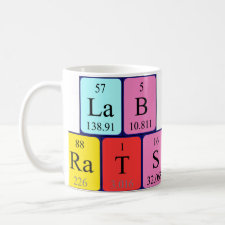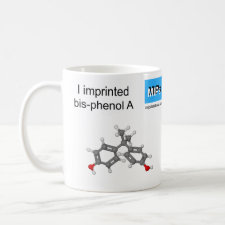
Authors: Wu YT, Liu YJ, Gao X, Gao KC, Xia H, Luo MF, Wang XJ, Ye L, Shi Y, Lu B
Article Title: Monitoring bisphenol A and its biodegradation in water using a fluorescent molecularly imprinted chemosensor.
Publication date: 2015
Journal: Chemosphere
Volume: 119
Page numbers: 515-523.
DOI: 10.1016/j.chemosphere.2014.07.017
Alternative URL: http://www.sciencedirect.com/science/article/pii/S0045653514008674
Abstract: In this paper, we present a simple and rapid method for monitoring bisphenol A (BPA) and its biodegradation in environmental water using a fluorescent molecularly imprinted polymer chemosensor (fMIPcs). A fluorescent molecularly imprinted polymer (fMIP) was first synthesized by precipitation polymerization method using BPA as template, dansyl methacrylate as functional monomer. Then a fMIPcs was constructed by combining the fMIP with a fluorescent microplate reader. The fMIPcs displayed selective, concentration-dependent fluorescence quenching in response to BPA in water even in the existence of interferences, thereby allowing reliable high through-put quantification of BPA via simple fluorescence measurements. The fMIPcs was able to directly quantify BPA (from 10 to 2000 μg L-1) in different environmental water samples (distilled water, distilled water containing heavy metals and humic acid, tap water, and river water) with high accuracy, and to monitor BPA biodegradation in real-time. Using the fMIPcs, it was possible to achieve fast analytical results with lower limit of detection for BPA (3 μg L-1) from smaller sample volume (250 μL), which are superior to many relevant methods reported in the literature. Moreover, BPA levels and biodegradation rates measured by fMIPcs are comparable to the instrument-based method (HPLC). The fMIPcs developed in this work offers a new solution for simple, rapid, accurate and high through-put BPA quantification, and makes it possible to monitor BPA biodegradation in real time
Template and target information: bishenol A, BPA
Author keywords: fluorescent chemosensor, molecularly imprinted polymer, Microplate reader, Real-time monitoring, bisphenol A, Biodegradation



Join the Society for Molecular Imprinting

New items RSS feed
Sign-up for e-mail updates:
Choose between receiving an occasional newsletter or more frequent e-mail alerts.
Click here to go to the sign-up page.
Is your name elemental or peptidic? Enter your name and find out by clicking either of the buttons below!
Other products you may like:
 MIPdatabase
MIPdatabase









